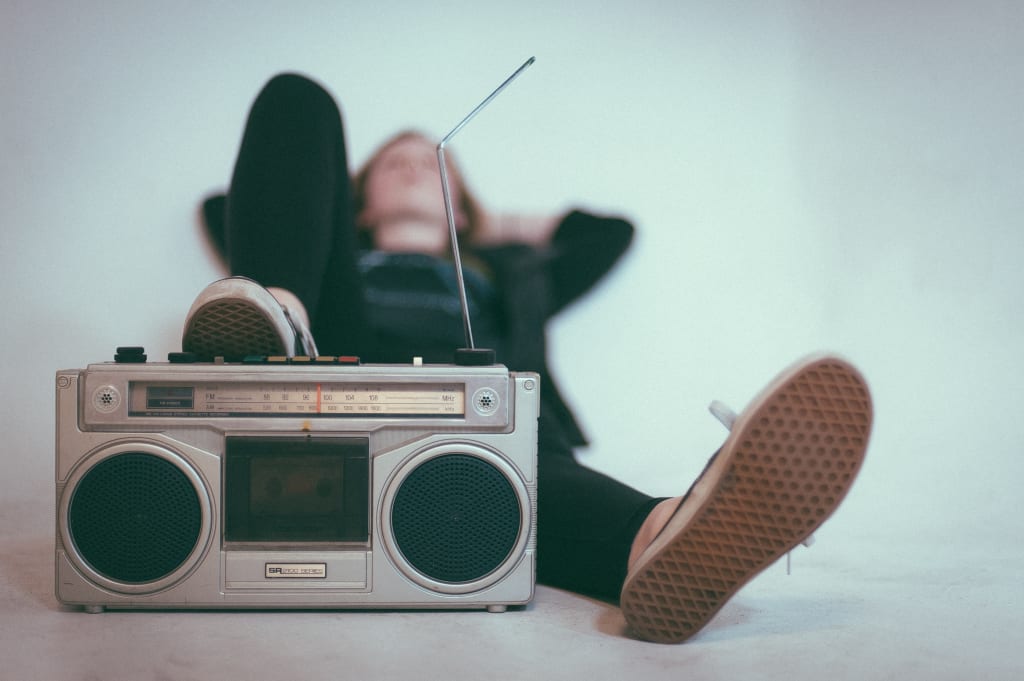The Surprising Link Between Music and Memory
How Melodies can Unlock the Past

Have you ever found yourself humming a tune from your childhood and suddenly being flooded with vivid memories? Or perhaps you've witnessed a loved one with Alzheimer's disease light up when they hear a familiar song from their youth. Music's profound ability to trigger memories is nothing short of astonishing. In this article, we'll explore the captivating world of the surprising link between music and memory, unveiling how melodies can unlock the past.
The Soundtrack of Our Lives
Have you ever noticed how a particular song can transport you back in time, making you relive vivid memories and emotions associated with a specific moment? This phenomenon highlights the profound relationship between music and memory. Music has the unique ability to trigger a flood of memories, whether they are joyful or melancholic, and it can even evoke forgotten experiences.
Music often acts as the soundtrack to our lives, anchoring significant events and emotions. A simple melody can whisk us back to our first dance, our high school graduation, or that unforgettable summer road trip. It's as if our brains have an innate playlist of life's most meaningful moments, ready to be activated by the right tune.
The Brain’s Musical Archive
To understand this connection better, let’s explore the brain’s role in storing and retrieving memories. Our brains have a remarkable capacity to encode and store information, including the sensory experiences tied to memories. Music, being a multi-sensory experience, creates strong connections in our brain’s neural network. When we hear a familiar song, it activates a web of memories associated with that song, such as where we were when we first heard it or the emotions we felt at the time.
Emotions and Music
One of the key reasons behind the music-memory connection lies in the emotional power of music. Different songs elicit various emotional responses, and these emotions are closely tied to the memories formed while listening to them. For example, a love song might remind you of a romantic moment, while an upbeat tune could bring back memories of a fun day with friends.
The Melodic Time Machine
Imagine music as a time machine, capable of transporting us to moments long forgotten. This phenomenon is rooted in the brain's intricate web of neural connections. When we listen to music, it engages various brain regions responsible for memory and emotion, such as the hippocampus and the amygdala. These connections between music and memory are so potent that even individuals with severe memory impairments can recall songs from their past.
Therapeutic Harmonies
The surprising link between music and memory isn't just a curiosity; it's a powerful therapeutic tool. Music therapy is increasingly recognized for its ability to improve the quality of life for people with Alzheimer's, dementia, and other memory-related conditions. Caregivers and therapists have witnessed remarkable transformations in patients as they engage with familiar melodies, often rekindling their sense of self.
The Mozart Effect
The relationship between music and memory is not limited to evoking personal recollections. The "Mozart effect," a term coined in the 1990s, suggests that listening to classical music can temporarily enhance spatial-temporal reasoning and cognitive abilities. While the exact mechanisms behind this phenomenon are still debated, it underscores the profound influence of music on our mental processes.
Soundtracks for Learning
In education, educators have harnessed the power of music to enhance memory and retention. Whether it's using catchy tunes to teach multiplication tables or turning historical events into memorable melodies, music has become an invaluable tool in the classroom. Students often find that learning through music makes subjects more engaging and memorable.
Music's Healing Touch
Beyond memory enhancement and education, music has the power to heal emotional wounds. Many individuals turn to music during times of grief, heartbreak, or stress. It acts as a soothing balm, helping us navigate life's emotional complexities and offering solace in times of need.
Conclusion
The surprising link between music and memory is a testament to the profound impact of melodies on our lives. Whether it's the ability to unlock long-lost memories, provide therapy for cognitive conditions, enhance learning, or offer emotional support, music's influence is undeniable. As you listen to your favorite songs, remember that each note carries the potential to transport you through time and evoke cherished moments from the past. In the symphony of life, music is the magical key that unlocks the door to our memories.





Comments (1)
I have seen this connection through the years, especially at Senior Centers. The mind seems to explode with activity, even if that person is usually mute. You may be intrigued by the following: https://vocal.media/earth/how-gardening-in-cambodia-changed-my-life-wd9k0vex Thank you for your thoughts.